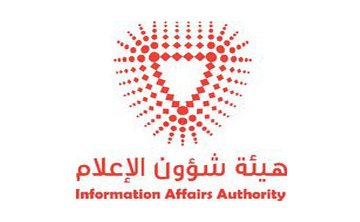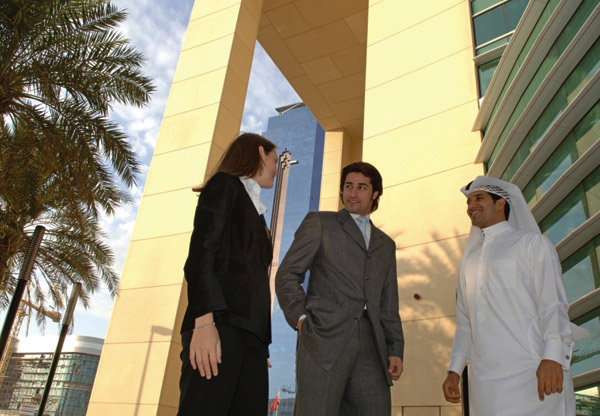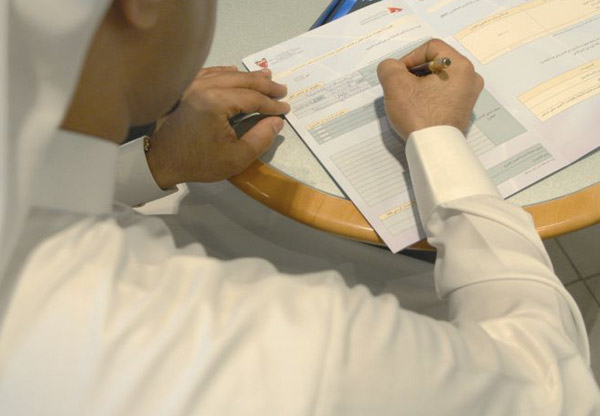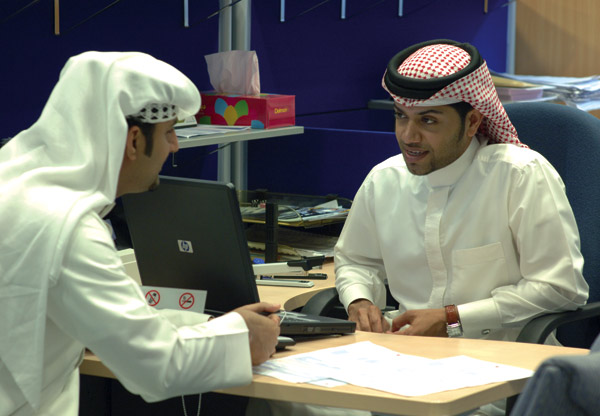Bahrain’s Information Affairs Authority (IAA) Profile
Bahrain’s Information Affairs Authority (IAA), is a newly established governmental entity that manages and supervisies internal and external media in Bahrain.


About Information Affairs Authority (IAA)
ContactKingdom Of Bahrain Postal Address: |
Tel: +973 17 871 111 Email: |
Profile
The Information Affairs Authority (IAA) is the government body in charge of the affairs of internal and external formal media in the kingdom, and supervises all media outlets, including newspapers, magazines, publications, radio and TV stations and websites. It has been presided by His Excellency Shaikh Fawaz bin Mohammed Al Khalifa since July 8th, 2010.
Achieving national interests and safeguarding national unity, security, stability and civic peace so as to ensure the continuity of the political and democratic reform march and economic development and protection of human right and basic freedoms, in a way that reflects the landmark strides attained during the prosperous era of His Majesty King Hamad bin Isa Al Khalifa, top IAA’s priorities.
Vision
Achieving Media Excellence in the light of Bahrain Vision 2030.
Mission
(Creativity in quality organization and performance of the media in order to boost national identity and international position of the Kingdom of Bahrain and to enrich community knowledge and culture).
Principles
1- Credibility. 2- Freedom. 3- Fairness. 4- Competitiveness. 5- Sustainability. Values: 1- Respect. 2- Commitment. 3- Quality 4- Creativity.
IAA’S FUNCTIONS AND DUTIES

Promote freedom of press and the rightsof expression and opinion in different printed, audio, audio-visual andelectronic media, according to the Constitution and international al laws andconventions
-
Publish official news, information andstatements and cover official and local national functions and inform local andinternational public on them transparently.
-
Broadcast radio and televisionprograms that consolidate common national values and enhance the spirits ofcooperation and fraternity, so as to maintain the tolerant religious ethics andprinciples.
-
Support sustainable development efforts and consecrate the principles of democracy, human rights, reformation and portrayal of the government’s foreign policy and its stances in various information media.
-
Develop the legislative infrastructure in thefields of press, publications and press and protect copy rights.
-
Propose media policies, strategies and implement them.
-
Grant licenses to private pressand media establishments, printing companies, publishing and distribution housesand NGOs specialized in media affairs.
-
Follow up local and foreign publicationscirculating in the Kingdom and monitor films and recorded publications in orderto ensure that they abide by the law and regulations, and do not violate publicorder or harm mor als, religions or sects.
-
Issue licenses to correspondents of foreignnewspapers, magazines, news agencies, radios and satellite TV channels to workin the kingdom and facilitate their missions.
-
Strengthen cooperation and newsexchange with foreign government bodies and media establishments.
-
Set up media centers and participate inpress conferences, inside and outside the kingdom.
-
Launch and organize specialized training andrehabilitation programs for human resources in the fields of press andmedia.
-
Encourage investments in the mediasector, in partnership with the private sector and leading foreign mediaestablishments.
-
Continue issuance of the (Official Gazette) which is the government’s weekly newspaper comprising royal decrees, laws and ministerial regulations in addition to advertising, statements, official communiques, court rules. The official gazette was published for the first time in 1948 under the name of (Official News-Bulletin) before it assumed its present name in 1969.
-
Encourage and honor distinctive in various(traditional and electronic) newspapers and media in order to upgrade the media mission reliant upon professionalism and in compliance with Bahraini laws and international conventions.
The IAA’s Structure
Establishment and Organization of the Information Affairs Authority
His Majesty King Hamad bin Isa Al Khalifa issued, on July 8th, 2010, Royal Decree (31) for the year 2010, renaming the Culture and Information Ministry into the (Ministry of Culture) and establishing the Information Affairs Ministry (IAA), to be in charge of all media affairs stipulated in the Kingdom’s laws and regulations. In Royal Decree (33) for the same year, HE Shaikh Fawaz bin Mohammed Al Khalifa has been appointed as IAA President with the rank of Minister.
Below is IAA’s organizational structure
First: IAA President:

-
Human andFinancial Resources Directorate
-
Bahrain NewsAgency (BNA), the main source of official news and reports.
Second: Director-General of Press andExternal Information:
-
ExternalInformation Directorate.
-
Press AffairsDirectorate.
Third: Director-General for Radio andTelevision Affairs:
-
RadioDirectorate
-
TelevisionDirectorate
-
News Directorate
-
TechnicalAffairs Directorate
Fourth: Director-General for Printing and Publications:
-
Printing and Publications Directorate.
-
Government Press Directorate.
Achievements
Media freedom
The number of newspapers in Bahrain has risen from 4 Arabic and English dailies in 1999 to 12 dailies and weeklies in 2012.
They are Akhbar Al-Khaleej (1976), Al-Ayam (1989), Al-Wassat (2002), Al-Watan (2005) and Al-Bilad (2008). Al-Meethaq (May 2004) and Al-Waqt (February 2006) stopped publishing due to financial reasons. Gulf Daily News (1978) and Daily Tribune (1997) are two English dailies.
Development of the audio-visual media
-
A rise in the number of Bahraini TV channels to namely: the main channel, foreign channel, sports channel1, sports channel2, in addition to two channels namely: the Holy Koran and Bahrain International launched in December 2011 and work according to latest technologies of transmission and quality in order to meet viewers’ aspirations.
-
A rise in the number of radio stations to eight radio stations namely: general radio Bahrain transmission, Holy Koran Radio, Bahrain FM, Shabibya Radio, Music Radio, Pop Music Radio, Hindi Radio, English Broadcast Radio (Radio Bahrain) in addition to voice transmission of Bahrain TV channel as well as foreign channel on Radio waves.
Upgrading media legislation
IAA is committed to upgrading legislation and laws regulating the press and media sector, whether conventional or electronic, as per international conventions and in cooperation with the legislative power and pioneering foreign institutions. Among the most important legislation are:
-
The amendment of law-decree number 47 for 2002 concerning the regulation of press, printing and publication so as to grant more freedom to journalism and media work.
-
A draft bill of law for the media to set up the Supreme Council for Press and Media which shall be an advisory council which gives its opinion regarding bills of law pertaining to media activity, preparation of research studies, follow up of financial reports of media and newspaper organizations, considers complaints, gives opinion on applications requesting issuance of licensure to establish or use media systems and organizations, or any official Bahraini media presence abroad.
-
A draft bill of law regarding the audio-visual media which organizes the rules and regulations pertaining to broadcasting and rebroadcasting of audio-visual programs, and the creation of the Audio-Visual Information Authority which shall acquire its corporate entity and shall be affiliated under the Minister both financially and administratively, and whose duty shall be to develop audio-visual media sector in the Kingdom and boost investments in it.
Qualifications and encouragement to media personnel
IAA is keen to improve the competence and performance of its staff through organizing various training courses and workshops, in cooperation with highly prestigious Arab and international media establishments for example with CNN, AOP, BBC, MBC, Reuters, TWofourt54, the French National Audio-visual Institute, etc..
IAA has always been committed to honoring distinguished works of active journalism and media. IAA President HE Shaikh Fawaz bin Mohammed Al Khalifa launched the Social Media Award 2012 in its first edition awarding prizes to the top 30 international social media users according to the following considerations, et alia: responsibility, creativity, contribution, confidence, credibility, compliance with professional ethics and morals. IAA intends to develop the award as from the year 2013 to cover throughout the GCC countries.
Fifth: Consolidating media relations abroad
IAA paid a great attention to the activation of MoUs signed with foreign media corporations and organizations in addition to opening media attaché offices in a number of sisterly and friendly countries in the year 2011 namely: Egypt, USA, UK, France and Belgium, and developing organizational skeleton of the external media sector in IAA. Moreover, IAA organizes specialized forums and conferences in the field of journalism, the media and intellectual property, etc., in addition to significant developments which portray the true facts behind the actual situation, reform and development accomplished in the Kingdom at various regional and international functions.
In recognition of the Kingdom’s achievements in terms of press and media freedom, His Majesty King Hamad bin Isa Al Khalifa received the Arab Media Creativity Award 2010 from the Arab Media Forum which coincided with the events of “Manama the Capital of the Arab Press for 2012” in the period 28-29 February 2012.
Strategy
IAA’s President HE Shaikh Fawaz bin Mohammed Al Khalifa inaugurated in June 2011 the authority’s media strategy for the years 2011-2016. This step is considered the first of its kind in the history of the official media work and aims to improve performance and stimulate creativity to upgrade the media sector on scientific grounds.
IAA intends to carry out its strategy both professionally and competently whilst observant to the five principles for a responsible media business as follows: credibility, responsible freedom, fairness, competitiveness by stimulating creativity and sustainability by encouraging media investments and promoting all economically feasible activities.
IAA media strategy focuses on high values and principles regarding mutual respect, compliance with ethical and professional principles in conduct and job performance, quality assurance, encouragement of creativity and self-improvement, featuring spirit of cooperation, collective work, ensuring efficient, excellent job performance and institutionalization of the media field.
Goals
-

Achieving social partnership
-
Achieving media quality in terms of organization, production and performance.
-
Improving technical quality by upgrading organizational policies, enforcing administrative, financial and technical procedures and upgrading the infrastructure.
-
Developing and stimulating human competencies to tap on creativity potentials and improve performance.
-
Providing and diversifying revenues to spur investments in the media field and rationalize the use of financial resources.
IAA is working on attracting international satellite stations and specialized media establishments in the media city set to be constructed after finalizing the needed legal and administrative procedures. It also seeks to promote local, Arab and foreign investments in the media field in partnership with the private sector and in conformity with the Economic Vision 2030.
IAA is strongly committed to building up an advanced media system that represents the cornerstone for sustainable political, economic and social development.
